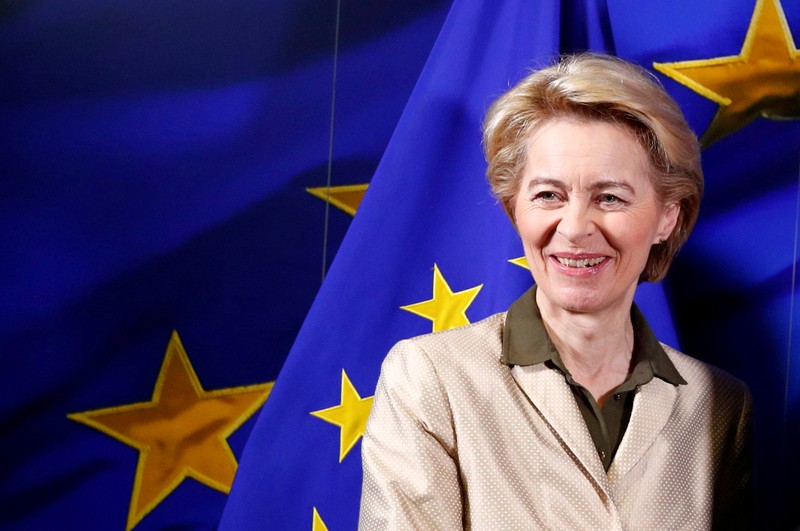
FILE PHOTO: EU Commission President-designate Ursula Von der Leyen is pictured before a meeting with incoming President of the EU Council Charles Michel in Brussels, Belgium, November 19, 2019. Picture taken November 19, 2019. REUTERS/Francois Lenoir/Pool/File Photo
November 28, 2019
By Gabriela Baczynska
BRUSSELS (Reuters) – Current European Union president Finland is expected to propose that the bloc’s next seven-year budget starting in 2021 amounts to 1.07-1.08% of the member states’ gross national income, three diplomatic sources told Reuters.
The current 2014-2020 budget for the 28 member states including Britain is 1.00% of the bloc’s Gross National Income (GNI), or roughly 130-150 billion euros a year. Excluding Britain, which is due to leave the EU, the current budget is equivalent 1.13% of GNI of the other 27 countries.
Finland will soon present the proposed headline number to other EU countries and national EU leaders will discuss it at their last summit this year on Dec. 12-13.
The bloc’s executive European Commission has already proposed a budget for 2021-27 of 1.11% of the EU27 GNI.
Talks about the size of the budget are extremely sensitive.
While the bloc of 500 million people has ambitions to tackle new challenges, its resources are dwindling. An exit for Britain — one of the biggest net payers — could leave a gaping hole.
Other major net payers led by Germany are reluctant to contribute more and want common spending capped at 1 percent of GNI. But poorer countries to the east and south want to keep generous EU cohesion funding to advance their economies.
New Commission head Ursula von der Leyen, a German conservative, wants to spend more on new priority areas including managing migration, fighting climate change and advancing the digital economy.
Currently, cohesion and agriculture funding each account for just over a third of the total for the 27 countries.
As part of the budget negotiations, some EU countries also want to get rid of special rebates like those enjoyed by Britain and the Netherlands. The Netherlands, a net payer, is not impressed by this idea.
France meanwhile favors introducing an EU-wide digital tax on tech giants like Facebook and Google to boost joint coffers without raising individual member states’ contributions.
After the initial discussion on the Finish proposal in Brussels in mid-December, EU leaders may hold an extra summit in February to try to move closer to an agreement, several EU diplomatic sources said.
The EU parliament has called for an even bigger budget of 1.3% of GNI. All players will have to converge around one figure for there to be a deal, meaning it could be difficult to seal an agreement by mid-2020 as the bloc hopes.
(Reporting by Gabriela Baczynska; Editing by Catherine Evans)

